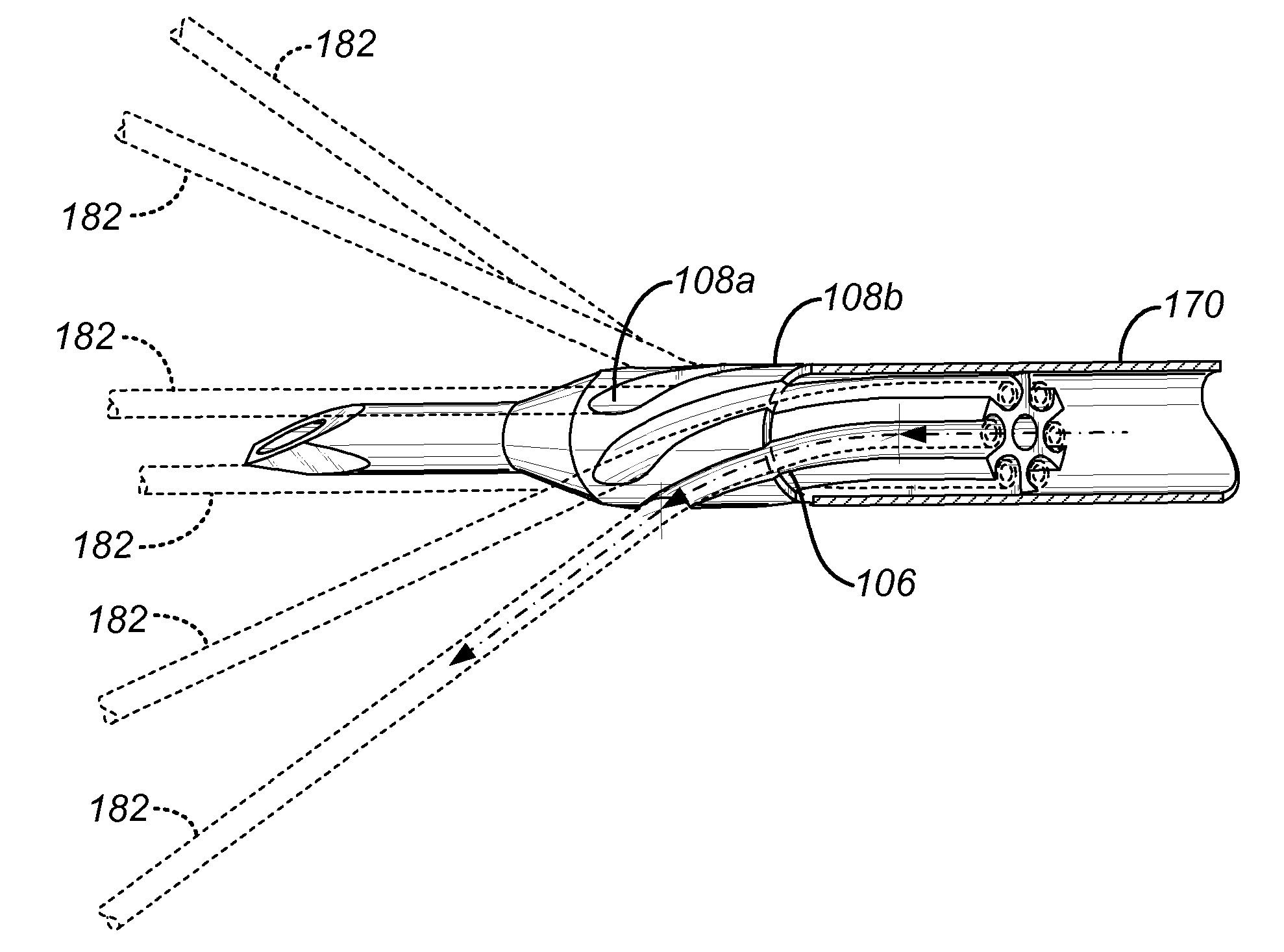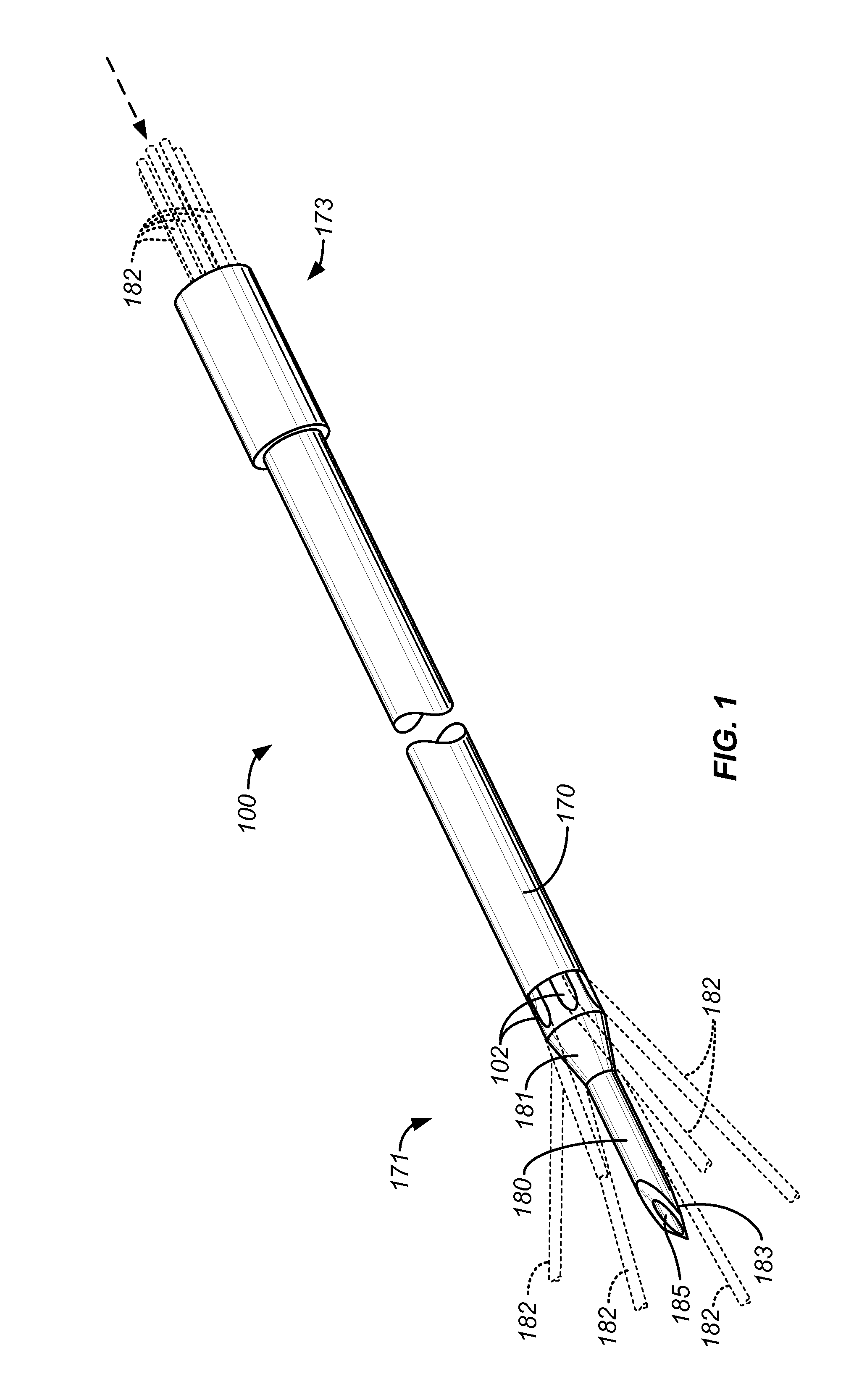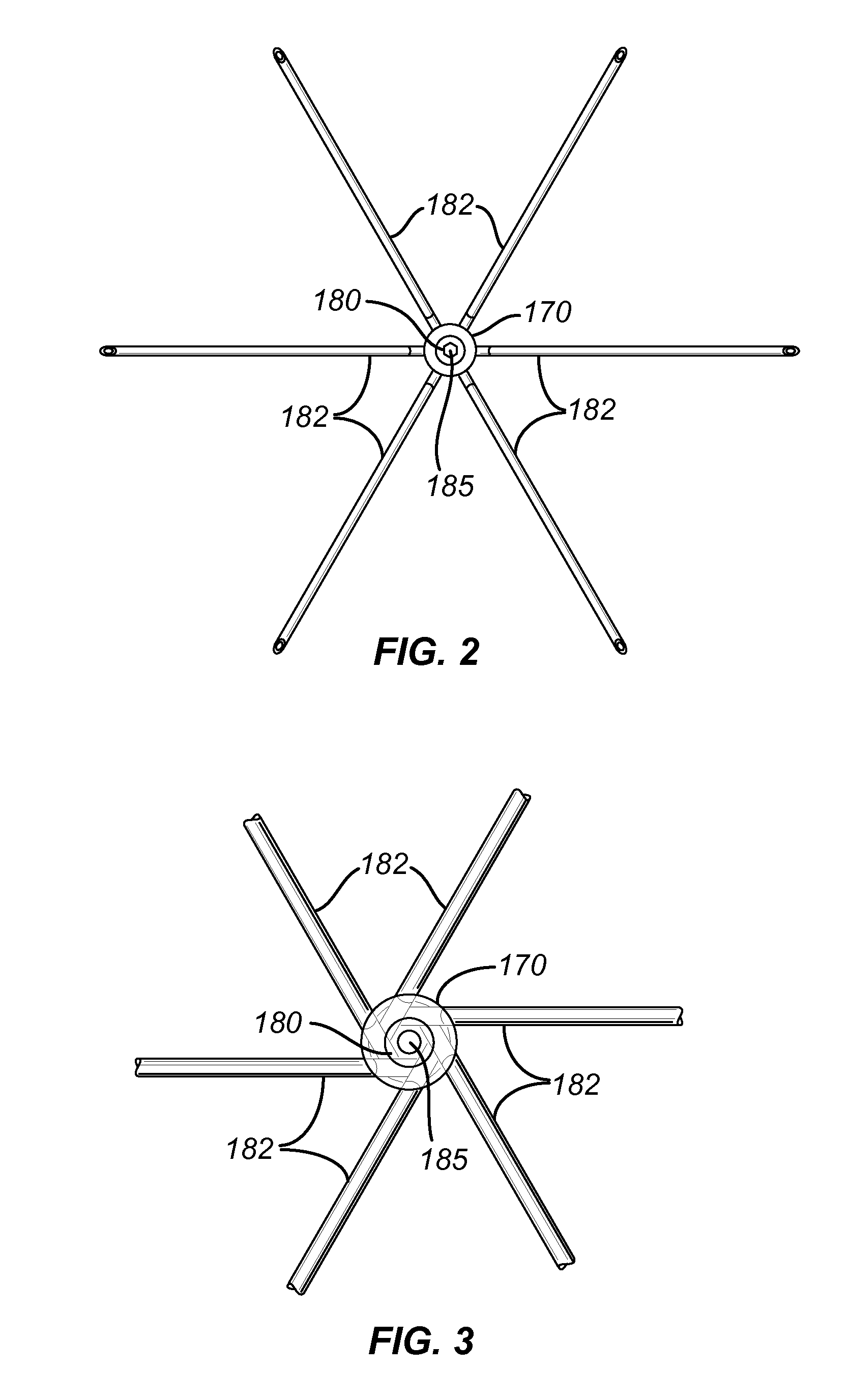Needle and tine deployment mechanism
a deployment mechanism and needle technology, applied in the field of medical devices and methods, can solve the problems of increasing the stress imparted to the needle, the ability to increase the exit angle, for example, by lengthening the ramp, and the ramp deflecting ramp, etc., to achieve the effect of improving and stabilizing the geometry, reducing the stress on the needle, and gradual bending radius
- Summary
- Abstract
- Description
- Claims
- Application Information
AI Technical Summary
Benefits of technology
Problems solved by technology
Method used
Image
Examples
Embodiment Construction
[0050]The present invention provides electrode deployment structures comprising needle electrode deployment shafts capable of reciprocatably deploying a plurality of needle electrodes into solid tissue. The needle electrode deployment shafts will comprise a central member having a proximal end, a distal end, and a longitudinal axis therebetween. Typically, the central member will have a distal end which is configured to permit self-penetration, e.g. the central member may itself be a needle having a sharpened or chamfered tip which permits the central member to be advanced into tissue by simply pushing. In other embodiments, the central member could comprise a hollow tubular body, commonly referred to as a cannula, having a needle or stylet removably received within a central lumen thereof. The cannula could then be introduced by placing the stylet with its sharpened tip extending from the distal end of the cannula and pushing the assembly of the cannula and stylet into tissue. The ...
PUM
 Login to View More
Login to View More Abstract
Description
Claims
Application Information
 Login to View More
Login to View More - R&D
- Intellectual Property
- Life Sciences
- Materials
- Tech Scout
- Unparalleled Data Quality
- Higher Quality Content
- 60% Fewer Hallucinations
Browse by: Latest US Patents, China's latest patents, Technical Efficacy Thesaurus, Application Domain, Technology Topic, Popular Technical Reports.
© 2025 PatSnap. All rights reserved.Legal|Privacy policy|Modern Slavery Act Transparency Statement|Sitemap|About US| Contact US: help@patsnap.com



